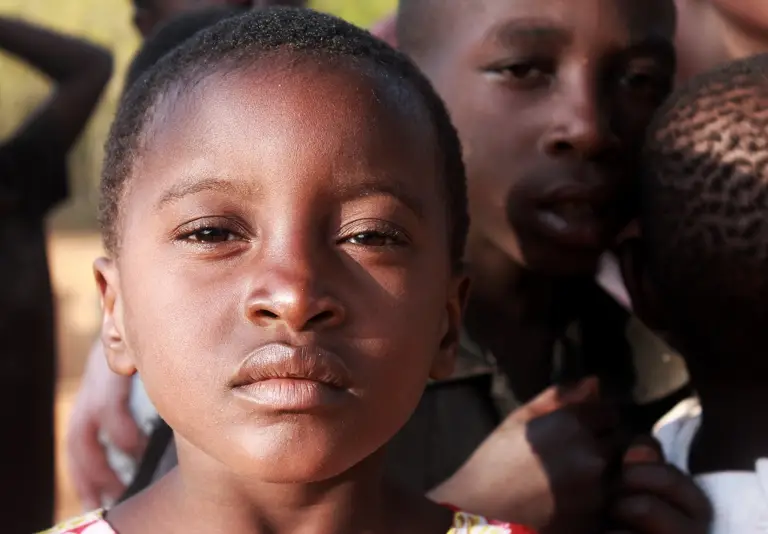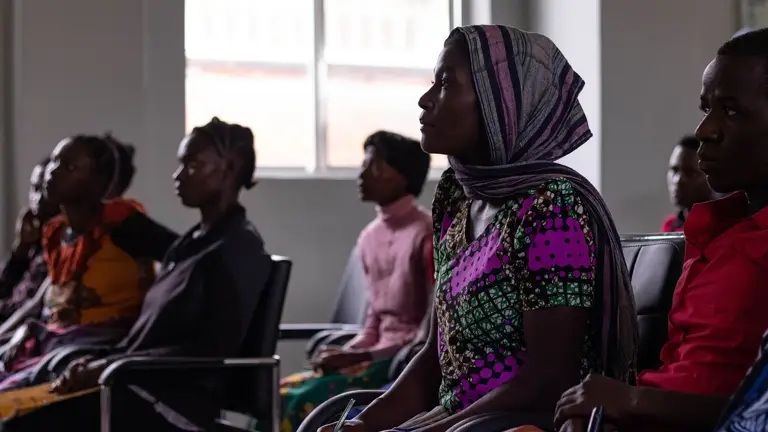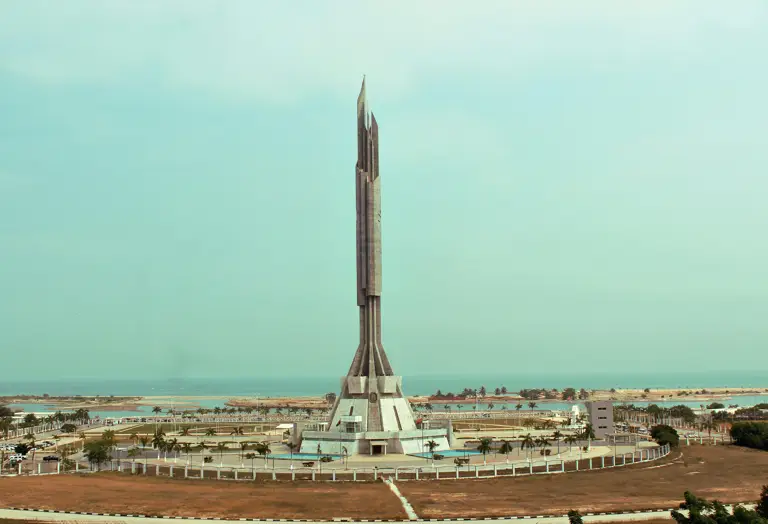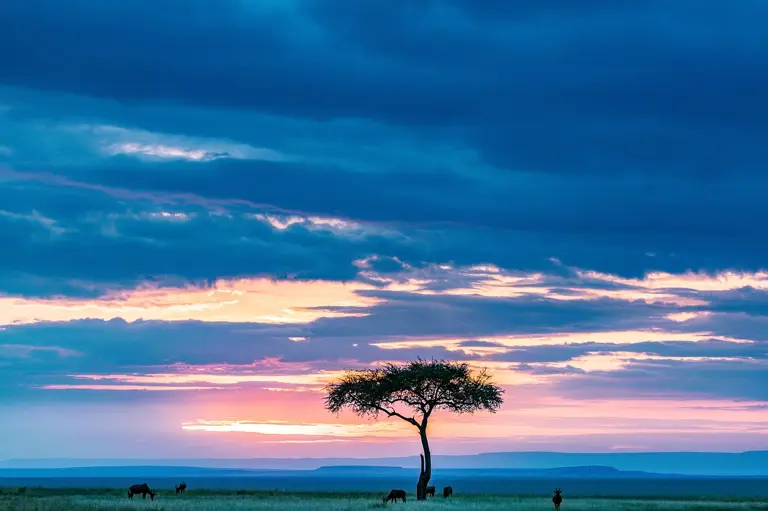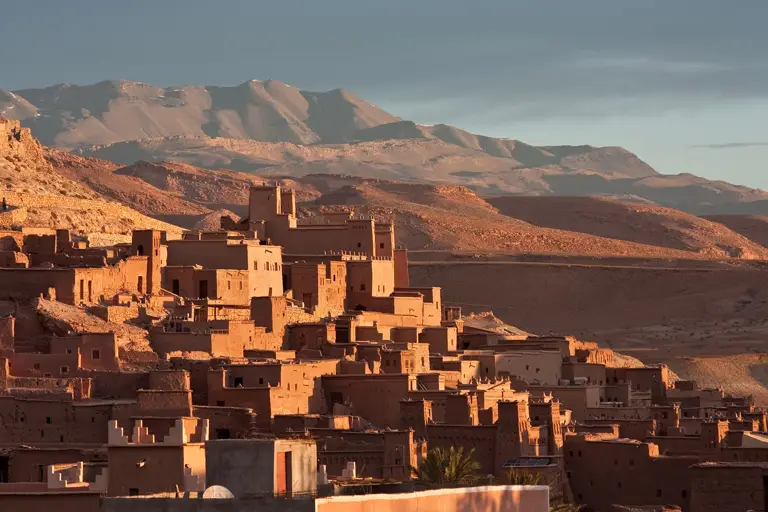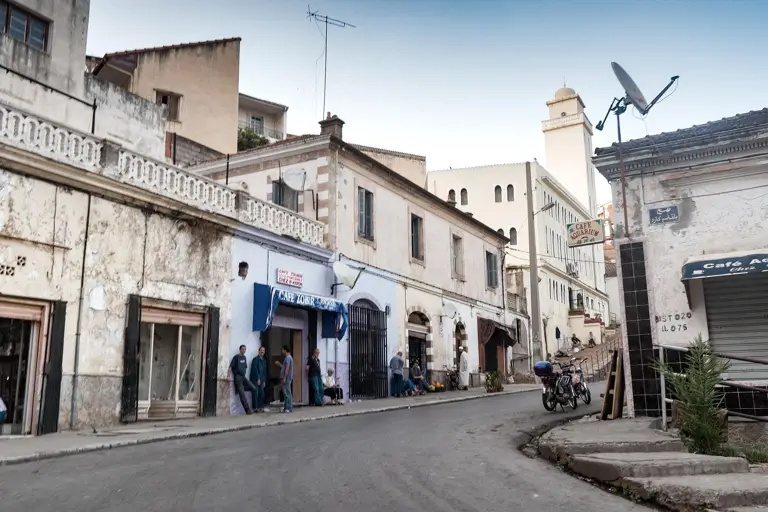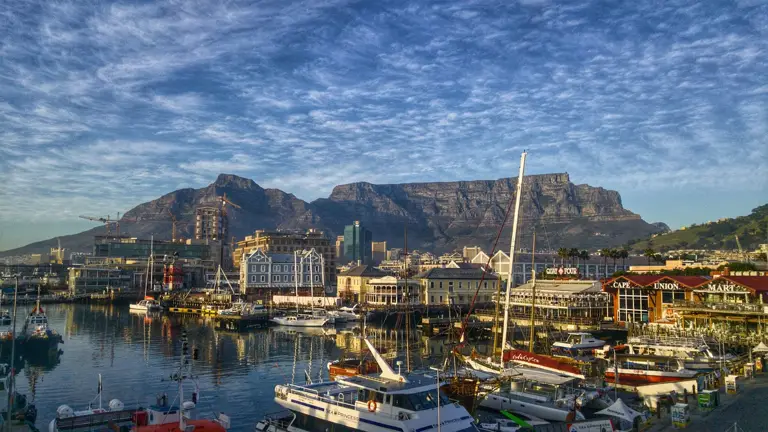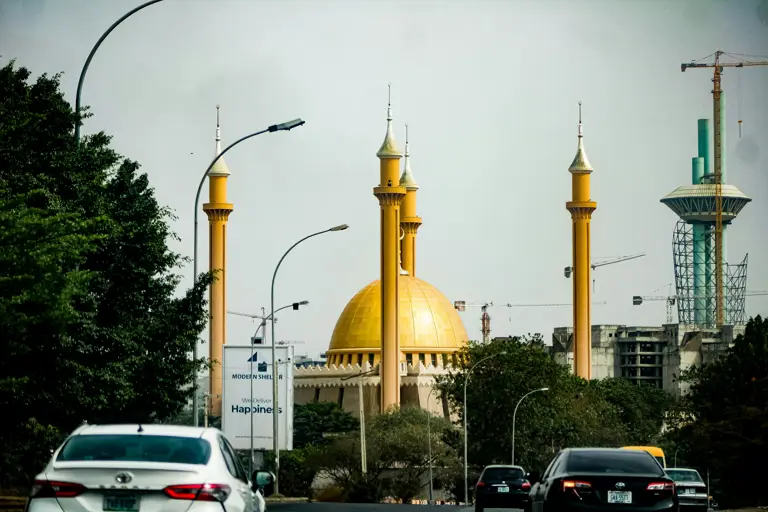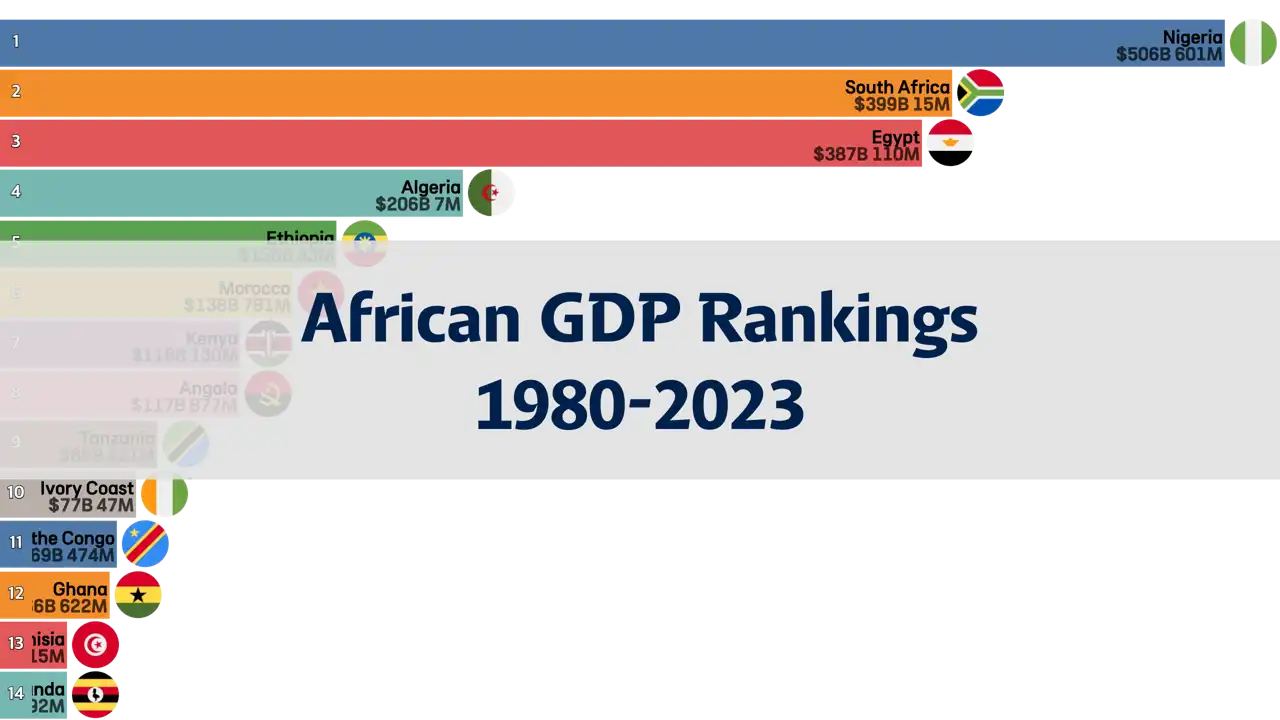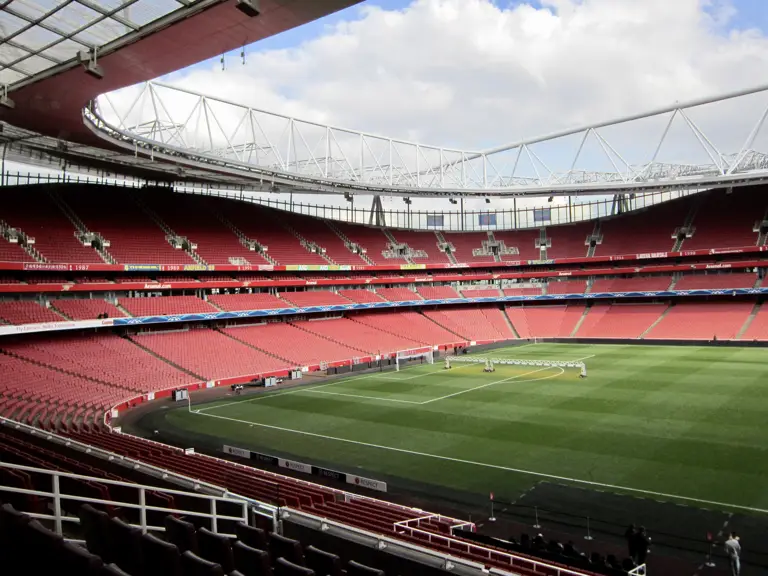
Africa's Top 10 Economies by GDP in 2023: From Nigeria's Boom to Côte d’Ivoire's Growth
- ASUMUP
- National Rankings / Africa
- August 27, 2024
Africa's economic landscape is incredibly diverse, with countries ranging from resource-rich giants to rapidly developing nations. In 2023, the continent's economies have continued to evolve, driven by a mixture of natural resources, agriculture, manufacturing, and services. Understanding the Gross Domestic Product (GDP) of African countries offers insights into their economic strengths and growth potentials. This ranking highlights the top 10 African economies by GDP in 2023, providing a snapshot of their economic status and the factors contributing to their performance. From Nigeria's booming oil economy to Côte d’Ivoire's steady growth, these nations are key players in Africa's ongoing economic narrative.
Nigeria leads the list with a significant margin, underscoring its role as the continent's economic powerhouse. South Africa and Egypt follow closely, each with unique economic structures and challenges. The diversity of these top economies illustrates the varied paths African countries are taking toward economic development. This list not only reflects current GDP figures but also hints at future growth trajectories that could reshape the continent's economic landscape in the years to come.
Africa's Top Economies in 2023
- 1st Nigeria - $506.6 billion
- 2nd South Africa - $399.0 billion
- 3rd Egypt - $387.1 billion
- 4th Algeria - $206.0 billion
- 5th Ethiopia - $156.1 billion
- 6th Morocco - $138.8 billion
- 7th Kenya - $118.1 billion
- 8th Angola - $117.9 billion
- 9th Tanzania - $85.4 billion
- 10th Côte d’Ivoire - $77.0 billion
10th Côte d’Ivoire - $77.0 billion
Côte d’Ivoire, with a GDP of $77.0 billion, ranks as the tenth-largest economy in Africa in 2023. The country's economy is primarily driven by agriculture, particularly cocoa and coffee production, which are major export commodities. Côte d’Ivoire is the world's largest producer of cocoa, and this sector plays a crucial role in the economy, providing employment and export revenue. In addition to agriculture, the country has been developing its manufacturing and services sectors, contributing to its overall economic growth.
Côte d’Ivoire has experienced strong economic growth in recent years, supported by political stability and economic reforms aimed at improving the business environment. However, challenges such as poverty, infrastructure deficits, and a reliance on commodity exports remain. The government's continued focus on diversification and infrastructure development is key to sustaining the country's growth and improving living standards.
9th Tanzania - $85.4 billion
Tanzania's economy, with a GDP of $85.4 billion, is the ninth largest in Africa as of 2023. The country has a diverse economy with key sectors including agriculture, mining, and tourism. Agriculture is the mainstay of the Tanzanian economy, employing a majority of the population and contributing significantly to GDP. The country is also rich in natural resources, particularly gold, which is a major export product. Additionally, Tanzania's tourism industry, driven by its national parks and natural attractions like Mount Kilimanjaro, is a vital part of the economy.
Tanzania's economic growth has been steady, but the country faces challenges such as inadequate infrastructure, poverty, and a need for further economic diversification. The government has been investing in infrastructure and encouraging industrialization to boost economic growth. Tanzania's strategic location in East Africa and its natural resources make it an important player in the region's economic development.
8th Angola - $117.9 billion
Angola, with a GDP of $117.9 billion, ranks as the eighth-largest economy in Africa in 2023. The Angolan economy is heavily dependent on its oil sector, which accounts for the vast majority of government revenue and export earnings. As one of Africa's top oil producers, Angola has benefited from high oil prices, which have driven economic growth. However, the country has also faced challenges related to over-reliance on oil, including economic volatility and difficulties in diversifying the economy.
In recent years, Angola has made efforts to diversify its economy by investing in agriculture, mining, and infrastructure development. The government has also focused on improving governance and reducing corruption to create a more stable business environment. While Angola's economy remains heavily tied to oil, these diversification efforts are crucial for ensuring long-term economic stability and growth.
7th Kenya - $118.1 billion
Kenya ranks seventh in Africa with a GDP of $118.1 billion in 2023. The Kenyan economy is one of the most diversified in East Africa, with key sectors including agriculture, manufacturing, tourism, and financial services. Agriculture remains the backbone of the economy, employing a significant portion of the population and contributing to a large share of export earnings. Kenya is also a regional hub for technology and innovation, often referred to as the 'Silicon Savannah,' with a growing tech industry that has attracted international attention.
Kenya's economic growth has been robust, though challenges such as political instability, corruption, and infrastructure deficits persist. The country's Vision 2030 development plan aims to transform Kenya into a middle-income country by focusing on infrastructure development, industrialization, and improving the business environment. As Kenya continues to leverage its strengths in agriculture and technology, it remains a key player in Africa's economic landscape.
6th Morocco - $138.8 billion
Morocco, with a GDP of $138.8 billion in 2023, is the sixth-largest economy in Africa. The country's economy is diversified, with key sectors including agriculture, mining, manufacturing, and tourism. Morocco is one of the world's largest producers of phosphates, which are a crucial export commodity. Additionally, the country has a growing automotive and aerospace industry, making it a key player in Africa's industrial sector. Tourism also plays a vital role in Morocco's economy, attracting millions of visitors annually to its historic cities and cultural sites.
Morocco's economic growth has been steady, supported by political stability and significant infrastructure investments, particularly in renewable energy. However, challenges such as youth unemployment and regional disparities remain. The government's focus on economic diversification and modernization continues to drive Morocco's development, making it one of the most stable and promising economies in Africa.
5th Ethiopia - $156.1 billion
Ethiopia, with a GDP of $156.1 billion, is one of the fastest-growing economies in Africa and ranks fifth in 2023. Unlike many other top African economies, Ethiopia's growth is not driven by natural resources but by agriculture, manufacturing, and services. The country has made significant strides in infrastructure development, particularly in energy and transport, which have been key drivers of economic growth. Additionally, Ethiopia's government has focused on industrialization and expanding the manufacturing sector, which has attracted considerable foreign investment.
Despite its rapid economic growth, Ethiopia faces several challenges, including political instability, ethnic tensions, and a lack of access to basic services in rural areas. Nonetheless, Ethiopia's economic trajectory remains positive, with ongoing projects aimed at improving infrastructure, expanding industrial capacity, and increasing agricultural productivity. This growth strategy positions Ethiopia as a rising star in Africa's economic landscape.
4th Algeria - $206.0 billion
Algeria's economy, with a GDP of $206.0 billion, is heavily reliant on its hydrocarbon sector, which accounts for the majority of its export earnings and government revenues. As the largest country in Africa by land area, Algeria possesses vast oil and natural gas reserves, making it a significant player in the global energy market. The government has been trying to diversify the economy by investing in other sectors such as agriculture, manufacturing, and tourism, though these efforts have been met with mixed success.
Despite its wealth in natural resources, Algeria faces economic challenges, including high unemployment, a reliance on imports, and political uncertainty. The government's ongoing efforts to reduce dependence on hydrocarbons and promote sustainable economic growth are crucial for the country's future stability and prosperity. As such, Algeria's position as the fourth-largest economy in Africa underscores both its potential and the need for continued reform.
3rd Egypt - $387.1 billion
Egypt ranks third in Africa with a GDP of $387.1 billion in 2023. The Egyptian economy is one of the most diverse on the continent, with key sectors including agriculture, tourism, manufacturing, and services. The Suez Canal, a critical global shipping route, also significantly contributes to Egypt's economy, generating substantial revenue. Additionally, Egypt has seen a rise in its technology and telecommunications sectors, which are becoming increasingly important to the country's economic structure.
In recent years, Egypt has implemented a series of economic reforms aimed at stabilizing the economy, attracting foreign investment, and reducing public debt. These reforms have started to bear fruit, leading to increased investor confidence and economic resilience. While challenges such as population growth and regional instability remain, Egypt's strategic location and diversified economy continue to drive its economic progress.
2nd South Africa - $399.0 billion
South Africa, with a GDP of $399.0 billion, is Africa's second-largest economy in 2023. The country has a well-diversified economy with significant contributions from mining, manufacturing, services, and agriculture. South Africa is particularly known for its rich mineral resources, including platinum, gold, and diamonds, which play a crucial role in its economy. Additionally, the country's financial services sector is one of the most developed in Africa, making Johannesburg a key financial hub on the continent.
However, South Africa faces significant economic challenges, including high unemployment, income inequality, and energy shortages that have hampered growth. Despite these hurdles, the country's diversified economy provides a solid foundation for future growth. With ongoing investments in infrastructure and reforms aimed at boosting economic inclusivity, South Africa remains a vital part of Africa's economic landscape.
1st Nigeria - $506.6 billion
Nigeria stands at the forefront of Africa's economies with a GDP of $506.6 billion in 2023. As Africa's most populous country, Nigeria has leveraged its significant oil reserves to build the continent's largest economy. The oil sector remains the backbone of the Nigerian economy, contributing a substantial portion of government revenues and exports. However, in recent years, there has been a concerted effort to diversify the economy with growing sectors such as telecommunications, banking, and agriculture playing an increasingly important role.
The Nigerian economy, while robust, faces several challenges, including infrastructure deficits, political instability, and fluctuating oil prices. Nevertheless, its large and youthful population presents a considerable opportunity for growth, particularly if diversification efforts continue and succeed. Nigeria's position as Africa's leading economy is a testament to its resilience and potential, making it a critical player in the continent's economic future.
Other Posts in the National Rankings / Africa
| Africa's Top 10 Economies by GDP in 2023: From Nigeria's Boom to Côte d’Ivoire's Growth |
|---|
Categories
- National Rankings(43)
- Science & Technology(1)
- Sports(24)
- Economy(30)
- Society(12)
- Culture(7)
Recent Posts
![Bayern Spent HOW MUCH on Harry Kane?! Ranking Their Top 10 Biggest Signings Ever]() A deep dive into Bayern Munich's ten most expensive transfers, exploring how the club's spending strategy has evolved to chase European glory.
A deep dive into Bayern Munich's ten most expensive transfers, exploring how the club's spending strategy has evolved to chase European glory.![Arsenal's Record-Shattering Spree: From a €116M Gamble to a Flop, Who Was Worth the Cash?]() A deep dive into Arsenal's top 10 most expensive signings, analyzing the successes, the failures, and the massive fees that have defined the club's modern transfer strategy.
A deep dive into Arsenal's top 10 most expensive signings, analyzing the successes, the failures, and the massive fees that have defined the club's modern transfer strategy.![Chelsea Cashes In BIG TIME! Who Really Won the 25/26 Summer Transfer Window Money Game?]() A deep dive into the top 10 clubs that made the most money from player sales during the wild 25/26 summer transfer window.
A deep dive into the top 10 clubs that made the most money from player sales during the wild 25/26 summer transfer window.![Liverpool's Record-Breaking €483M Spree! Did They Just Buy the Premier League Title?]() A deep dive into the 25/26 summer transfer window reveals Liverpool's record-breaking spending spree as Premier League clubs continue to dominate the market.
A deep dive into the 25/26 summer transfer window reveals Liverpool's record-breaking spending spree as Premier League clubs continue to dominate the market.![You Won't Believe How Much a Loaf of Bread Costs in These Countries! (Spoiler: It's INSANE)]() This post explores the top 10 countries with the most expensive bread, revealing how factors like import reliance and tourism dramatically inflate the cost of this basic staple.
This post explores the top 10 countries with the most expensive bread, revealing how factors like import reliance and tourism dramatically inflate the cost of this basic staple.
